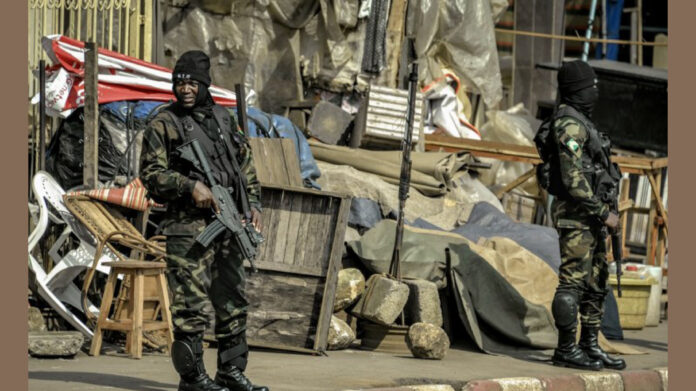
By Orville Williams and Shermain Bique-Charles
The violent Anglophone Crisis gripping Cameroon has forced dozens of Africans to flock to Antigua and Barbuda over the past few months, and is the reason many are pleading with the government not to follow through on its intentions to send them back home.
“Please, we are begging. Prime Minister, help us. We ran away from Cameroon because of a war…if you send us back to Cameroon, we will get jailed and punished and killed,” one of the fleeing Cameroonians said in a voice note to Observer on condition of anonymity.
The crisis – which is also referred to as the Cameroonian Civil War – is taking place in the country’s Southern Cameroons region, renamed Ambazonia, where Anglophone (English-speaking) separatists continue to rebel against the military over grievances including the mandatory use of French in their communities, and other instances of socio-economic marginalisation and discrimination.
Though protest action over these issues has been sporadic since the days of Cameroon’s independence in 1960, the current stage of the crisis started when unions representing teachers and lawyers commenced what were reported to be peaceful demonstrations over the obligatory use of French in their English-speaking schools and courts.
The government is said to have responded strongly to that perceived dissent, cracking down on the demonstrators and even throwing some of the protest leaders in prison.
This response was met in kind by the Anglophone separatists who launched an assault on the military in defence of their people and their culture, but this assault prompted the government to send the army into the Anglophone regions in a bid to wrest control and deal reprimand.
The crisis has since escalated, with thousands of people reportedly killed over the years and more than half a million said to have forcibly fled their homes.
Fast-forward to today, more than 100 African travellers – the majority of whom are allegedly Cameroonian – remain in Antigua, having made their way into the Eastern Caribbean on charter flights over the past weeks and months.
Their arrival was previously heralded by the government as a welcome boost to Antigua and Barbuda’s tourism product, but their reluctance to leave caused a stir – so much that the government’s stance changed and it announced imminent plans to repatriate the visitors.
That announcement caused near-immediate consternation among the group of Africans that remains in the country, as they fear being returned home could result in the same detriment they have sought to escape.
“Our people are marginalised, they are being killed. The youths are gone, parents are gone, they burn houses, destroy things…since 2017 to today, 2023, they are killing people every day. Women are lamenting for their children being killed, children are lamenting for their parents being killed, everyone is in trouble.
“Children are not going to school. They burn schools, they burn houses [and] they kill all the youths. They are killing youths every day…they keep killing all the youths, they don’t want to see a male child,” one middle-aged Cameroonian woman emotionally told our newsroom.
She explained that Antigua and Barbuda is not the only country to have been identified by her people as a ‘safe haven’ from the persecution, with many others choosing to flee to neighbouring African countries and other places in the Caribbean.
“Some of them fled to Nigeria, others fled to neighbouring countries [including] Gabon. They keep fleeing all over, [and] those that are very poor, they don’t even know how to go. They don’t have money to fly or to run to anywhere. They will all remain home and will be killed.
“If some of these children can be able to run right to Antigua, they should be secured. [And] let them free in others areas if they will not allow them to stay in Antigua.
“I’m talking like this with tears in my eyes. I lost my two junior brothers, my father [and] my mom died of a heart attack. Everyone is running for their dear lives,” she said.
Since speaking with this woman, who also requested to remain anonymous, scores of her compatriots have been less reluctant to engage with the media and voiced similar concerns, pleading with the government to allow them to remain in the country and safe from victimisation.
The government, for its part, has voiced a willingness to provide the Cameroonians remaining in Antigua with that type of support if needed, saying there are mechanisms in place to provide same.
Last week – during the first post-Cabinet media briefing since the January 18 general elections – Cabinet spokesperson, Information Minister Melford Nicholas, announced that it had decided to temporarily halt all chartered flights originating in West Africa from entering the country.
This, it said, was due to the unexpected and unwanted efforts of a charter operator to ‘piggyback’ on the work being done to promote Antigua Airways – an official partnership between the government and a Nigerian investor.
He revealed too that the government would have to arrange a flight to return the Africans home, saying none had approached the relevant authorities up to that time for consideration of asylum.
It is unclear, at the time of writing, whether any formal requests for asylum have been made since last week’s confirmation.
